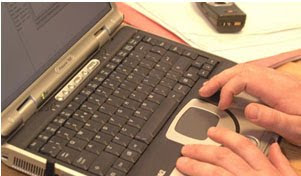
Many people have problems with the speed of their desktop or laptop computer. Today’s computer users tend to open up several applications at work. Whether in the workplace or at home, the ability to multitask is very important to a computer user. For example, if a person opens up a web browser, a computer game, a chat platform such as AIM, and a music player at one time, it often leads to the computer performing very slowly or even freezing up in some cases. This can be a huge inconvenience which can often be remedied by getting a computer memory upgrade. For the purposes of this article, memory upgrade refers to “RAM memory.” Some people also buy Hard Drive memory to increase the storage space on their computer. However, RAM memory refers to the memory used for temporarily storing the data which the computer is using at a specific instance. When upgrading computer or laptop memory, it is important to shop around and do research. RAM memory can be expensive and it is important to research the best upgrade for each computer. It is important to make sure that the technology of the memory is in sync with the computer.
Not only can increasing the RAM availability make it possible for the user to run many different programs at once, it also enables the computer to run more sophisticated software programs. Without the required amount of computer memory, a program will not function smoothly, if it runs at all. In addition, there is a greater risk of the computer freezing up completely. When using a home computer, this can be very frustrating. On the other hand, if a computer at work does not have enough RAM, it can greatly slow down productivity. The amount of money the extra computer memory would cost can pale in comparison to the loss of productivity a slow computer can cause.
Laptop memory is often more difficult to upgrade than desktop memory. Laptops are generally more restricted in the amount of memory that can be installed into a system. Today, laptops typically run somewhat slowly with 1 GB of RAM, optimally with 2 GB of RAM, and best at 4 GB of RAM. How much an individual gets usually depends on the programs he or she plans to run on the laptop. Laptops generally have two slots available for memory modules while desktop systems have four or more. When buying a laptop, it is important to determine if it has enough RAM, or if the amount of RAM needed is installable. For many people, the portability of a laptop computer makes up for the lower memory capability.
Not only can increasing the RAM availability make it possible for the user to run many different programs at once, it also enables the computer to run more sophisticated software programs. Without the required amount of computer memory, a program will not function smoothly, if it runs at all. In addition, there is a greater risk of the computer freezing up completely. When using a home computer, this can be very frustrating. On the other hand, if a computer at work does not have enough RAM, it can greatly slow down productivity. The amount of money the extra computer memory would cost can pale in comparison to the loss of productivity a slow computer can cause.
Laptop memory is often more difficult to upgrade than desktop memory. Laptops are generally more restricted in the amount of memory that can be installed into a system. Today, laptops typically run somewhat slowly with 1 GB of RAM, optimally with 2 GB of RAM, and best at 4 GB of RAM. How much an individual gets usually depends on the programs he or she plans to run on the laptop. Laptops generally have two slots available for memory modules while desktop systems have four or more. When buying a laptop, it is important to determine if it has enough RAM, or if the amount of RAM needed is installable. For many people, the portability of a laptop computer makes up for the lower memory capability.
Whether buying Apple memory, Compaq memory or Dell memory, most computer stores can offer advice on what the best memory upgrade is for each computer.
No comments:
Post a Comment